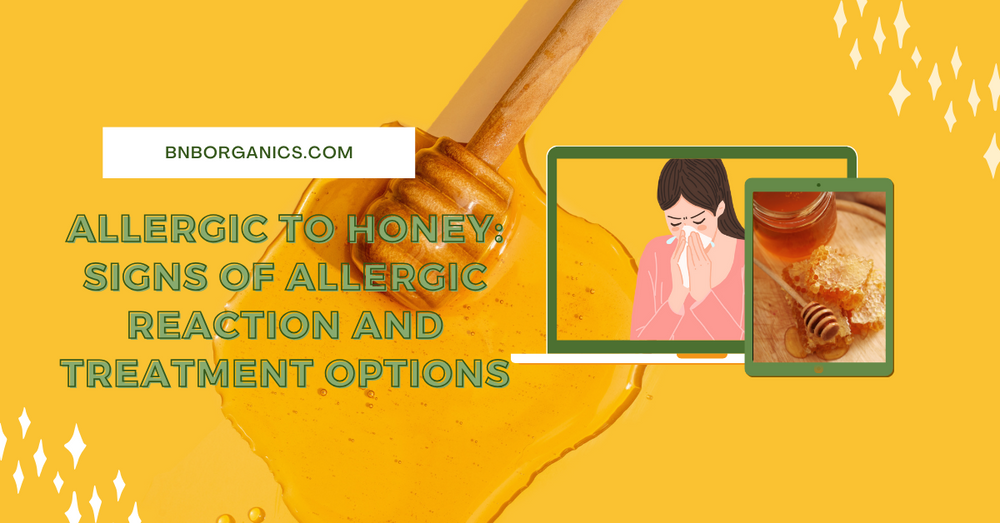Honey is a natural sweetener that has been used for thousands of years for its nutritional and medicinal properties. However, for some individuals, honey can cause an allergic reaction. An allergy to honey is not very common, but it can occur in some people. In this article, we will discuss the signs of an allergic reaction to honey and the treatment options available.
Signs of Allergic Reaction to Honey:
An allergic reaction to honey occurs when the immune system reacts to proteins found in the honey. The severity of the allergic reaction can vary from mild to severe. Some common signs of an allergic reaction to honey include:
Swelling of the lips, tongue, and throat
- Hives or rash
- Wheezing or difficulty breathing
- Nausea or vomiting
- Dizziness or fainting
- Itchy, watery eyes
- Runny nose
- Abdominal cramps or diarrhea
If you experience any of these symptoms after consuming honey, it is essential to seek medical attention immediately. Anaphylaxis is a severe allergic reaction that can cause death in some cases.
Treatment Options for Allergic Reaction to Honey:
The treatment for an allergic reaction to honey depends on the severity of the symptoms. If the symptoms are mild, an over-the-counter antihistamine may be prescribed to alleviate symptoms like itching, rash, and hives. However, if the symptoms are severe, emergency medical attention is required.
In the case of anaphylaxis, epinephrine, a medication that helps to open the airways and reduce swelling, is given through an injection. If you are at risk of severe allergic reactions, you should carry an epinephrine auto-injector with you at all times.
Avoiding Honey and Honey Products:
f you are allergic to honey, the best way to prevent an allergic reaction is to avoid honey and honey products. This means not only avoiding honey as a sweetener but also avoiding foods that contain honey, such as honey mustard, honey-glazed ham, and honey BBQ sauce.
It is also essential to read food labels carefully to avoid accidentally consuming honey. Honey can also be found in some skin care products, so it is important to read the ingredients list before using any products on your skin.
Conclusion:
An allergic reaction to honey is not very common, but it can occur in some individuals. The severity of the reaction can vary from mild to severe, and it is important to seek medical attention immediately if you experience any symptoms.
Treatment options for an allergic reaction to honey depend on the severity of the symptoms. Mild symptoms can be treated with antihistamines, while severe symptoms require emergency medical attention.
The best way to prevent an allergic reaction to honey is to avoid honey and honey products altogether. By being vigilant about the foods and products you use, you can reduce the risk of an allergic reaction and stay safe and healthy.











